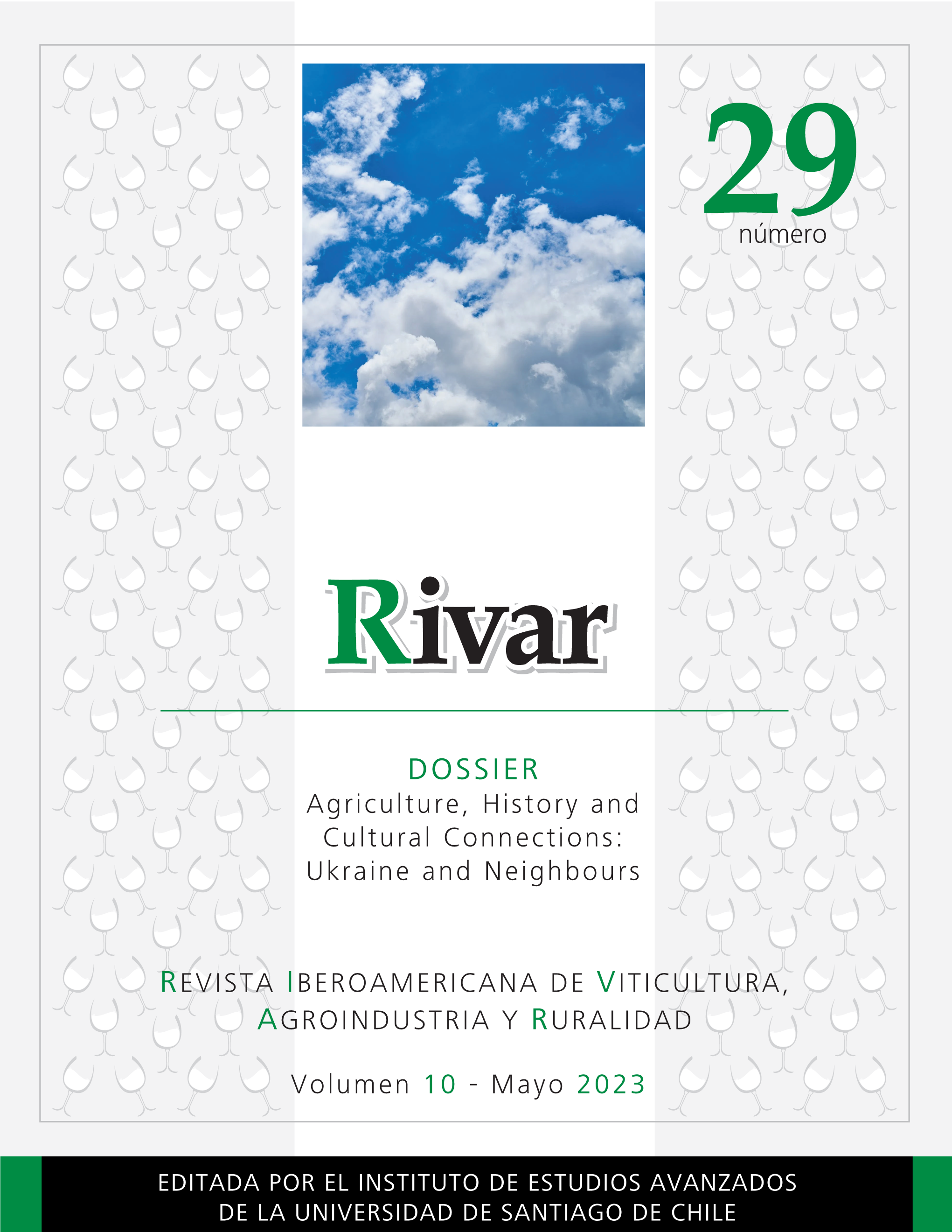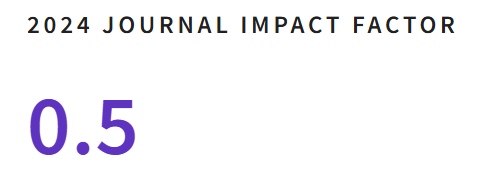Safe Development of the Tourism Industry in the European Space
DOI:
https://doi.org/10.35588/rivar.v10i30.5686Keywords:
security, sub-regional clusters, competitiveness, national income, European UnionAbstract
Consideramos las bases teóricas, metodológicas y prácticas para un desarrollo seguro de la industria turística en el espacio europeo, identificando los segmentos de desarrollo seguro de la industria turística entre los países de la Unión Europea (UE), teniendo en cuenta los factores del entorno interno y externo del espacio turístico. Se demuestra que el concepto de enfoque de clúster proporciona un negocio competitivo seguro, basado en el uso de aglomeraciones y estructuras de red para mejorar el desarrollo innovador de los clústeres de turismo en la UE. Determinamos además la estructura del Índice de Competitividad de la UE en el entorno seguro de la industria del turismo, y analizamos el número de clústeres subregionales de turismo en los estados miembros de la UE. Para ello, se evalúa la relación entre el Índice de Competitividad de la UE en la industria del turismo y sus subíndices, determinando el volumen óptimo y las tasas de crecimiento de la renta nacional procedente de los viajes en los grupos subregionales de la UE. Finalmente, se calcula la parte proyectada de la contribución total de los clústeres subregionales de países de la UE al ingreso nacional de la industria del turismo y se realiza la distribución de clústeres subregionales según el grado de influencia de los subíndices de desarrollo seguro de la industria turística entre los países de la UE.
Downloads
References
Angelevska-Najdeska, K. and Rakicevik, G. (2012). “Planning of Sustainable Tourism Development.” Procedia-Social and Behavioral Sciences 44: 210-220. DOI https://doi.org/10.1016/j.sbspro.2012.05.022
Bloom Consulting (2021). The Travel & Tourism Competitiveness Report. In https://www.bloom-consulting.com/journal/bloom-consulting-international-data-partner-for-the-2021-travel-tourism-competitiveness-report-ttcr-for-the-world-economic-forum (accessed 04/04/2023).
Boukas, N. and Ziakas, V. (2014). “A Chaos Theory Perspective of Destination Crisis and Sustainable Tourism Development in Islands: The Case of Cyprus.” Tourism Planning & Development 11(2): 191-209. DOI https://doi.org/10.1080/21568316.2013.864995
Brouder, P. (2012). “Creative Outposts: Tourism’s Place in Rural Innovation.” Tourism Planning & Development 9(4): 383-396. DOI https://doi.org/10.1080/21568316.2012.726254
Carlisle, S.; Johansen, A. and Kunc, M. (2016). “Strategic Foresight for (Coastal) Urban Tourism Market Complexity: The Case of Bournemouth.” Tourism Management 54: 81-95. DOI https://doi.org/10.1016/j.tourman.2015.10.005
Chen, H.; Chang, Y.C. and Chen, K.C. (2014). “Integrated Wetland Management: An Analysis with Group Model Building Based on System Dynamics Model.” Journal of Environmental Management 146: 309-319. DOI https://doi.org/10.1016/j.jenvman.2014.05.038
Cooper, C.; Fletcher, J.; Gilbert, D. and Wanhill, S. (2005). Tourism: Principles and Practice. London, Pearson Education.
Egilmez, G. and Tatari, O. (2012). “A Dynamic Modeling Approach to Highway Sustainability: Strategies to Reduce Overall Impact.” Transportation Research Part A: Policy and Practice 46(7): 1086-1096. DOI https://doi.org/10.1016/j.tra.2012.04.011
Fayos-Solà, E. and Cooper, C. (2019). “Introduction: Innovation and the Future of Tourism.” In Fayos-Solà, E. and Cooper, C. (eds.). The Future of Turism. Innovation and Sustainability. Berlin, Springer: 1-16.
Fletcher, J.; Fyall, A.; Gilbert, D. and Wanhill, S. (2013). Tourism: Principles and Practice. London, Pearson Education Limited.
Hall, D.; Smith, M. and Marciszewska, B. (2006). Tourism in the New Europe: The Challenges and Opportunities of EU Enlargement. Boston, CABI.
Ivaniš, M. (2011). “General Model of Small Entrepreneurship Development in Tourism Destinations in Croatia.” Tourism and Hospitality Management 17(2): 231-250. DOI https://doi.org/10.20867/thm.17.2.5
Kokkranikal, J.; Cronje, P. and Butler, R. (2011). “Tourism Policy and Destination Marketing in Developing Countries: The Chain of Influence.” Tourism Planning & Development 8(4): 359-380. DOI https://doi.org/10.1080/21568316.2011.603885
Marti, P.; Nolasco-Cirugeda, A. and Serrano-Estrada, L. (2017). “Assessment Toolsfor Urban Sustainability Policies in Spanish Mediterranean Tourist Areas.” Land Use Policy 67: 625-639. DOI https://doi.org/10.1016/j.landusepol.2017.06.015
Masip, J.D. (2017). “Tourism policy in Spain: An overview.” The Tourist Review 53(1): 41-50.
Trusova, N.V.; Cherniavska, T.A.; Pasieka, S.R.; Hranovska, V.H.; Prystemskyi, O.S. and Demko, VS. (2020a). “Innovative Clustering of the Region in the Context of Increasing Competitive Positions of the Enterprises of the Tourist-Recreational Destination.” Geo Journal of Tourism and Geosite 33(3): 1126-1134. DOI https://doi.org/10.30892/gtg.31326-549
Trusova, N.V.; Krasnodied, T.L.; Demko, V.S.; Zakharchenko, O.H.; Morozova, Y.V. and Katsemir, O.S. (2022b). “Guarantee of Safe Innovative Development of the Tourist Industry of Ukraine.” Geo Journal of Tourism and Geosites 41(2): 422-432. DOI https://doi.org/10.30892/gtg.41212-846
Trusova, N.V.; Kyrylov, Y.Y.; Hranovska, V.H..; Prystеmskyi, O.S. and Sakun, A.Z. (2020c). “The Imperatives of the Development of the Tourist Services Market in Spatial Polarization of the Regional Tourist System.” Geo Journal of Tourism and Geosites 29(2): 565-582. DOI https://doi.org/10.30892/gtg.29215-490
Trusova, N.V.; Tanklevska, N.S.; Cherniavska, T.A.; Prystеmskyi, O.S.; Yeremenko, D.V. and Demko, V.S. (2020d). “Financial Provision of Investment Activities of the Subjects of the World Industry of Tourist Services.” Journal of Environmental Management and Tourism 4(44): 890-902. DOI https://doi.org/10.14505//jemt.v11.4(44).13
Tsal-Tsalko, Y. (2021a). “Budgetary Programs of Tourism Development: Formation of Performance Indicators, Accounting Support and Analysis.” Scientific Horizons 5(78): 75-81. DOI https://doi.org/10.33249/2663-2144-2019-78-5-75-81
____. (2021b). “Information and Control Aspects of Tourism Services Quality Assessment Provision.” Scientific Horizons 1(74): 63-68.
United Nations (2008). Tourism Satellite Account: Recommended Methodological Framework. Luxembourg, Madrid, New York and Paris, United Nations Statistics Division.
World Tourism Organization (UNWTO) (2022a). UNWTO Tourism Dashboard – Insights on Key Performance Indicators for Inbound and Outbound Tourism at the Global, Regional and National Levels. Madrid, UNWTO. In https://www.unwto.org/unwto-tourism-dashboard (accessed 04/04/2023).
____. (2022b). UNWTO Tourism Data Dashboard. Madrid, UNWTO. In https://www.unwto.org/tourism-data/unwto-tourism-dashboard (accessed 04/04/2023).
Yakusheva, G.A. (2006). “Methodological Bases of the Cluster Approach in Increasing the Competitiveness of Enterprises.” Belarusian Economic Journal 2: 87-100.









